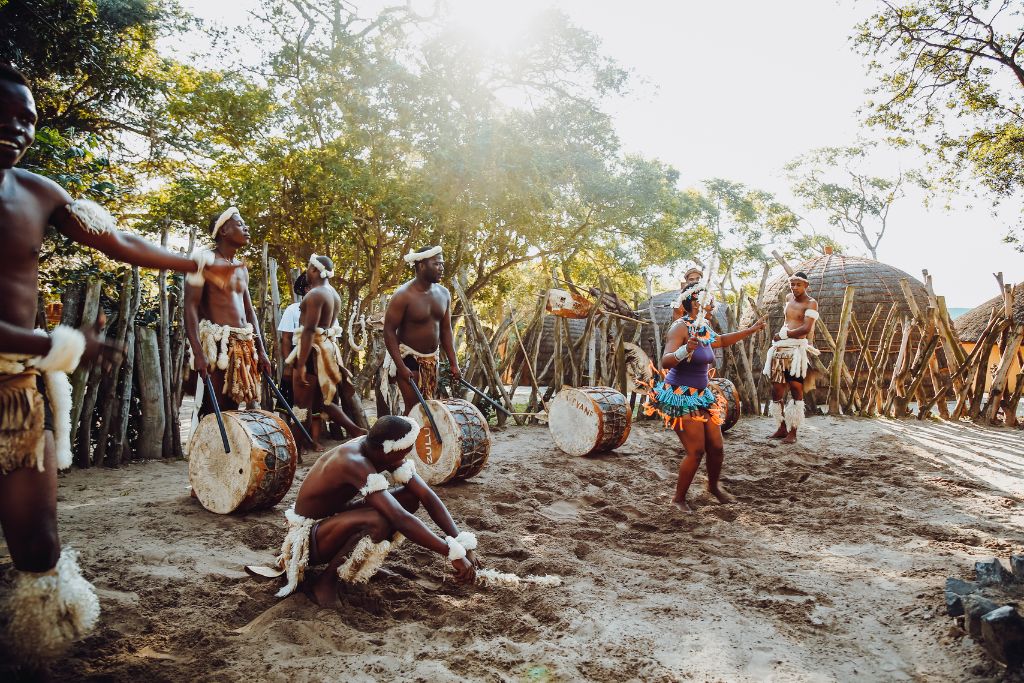Over the last decade, there has been growing awareness about climate change as communities around the world come to terms with the devastating effects of this phenomenon. Regrettably, this ubiquitous awareness hasn’t evoked long-term sustainable actions from most indigenous communities, especially in the Global South, where people often struggle to understand the basic tenets of climate change in relation to local realities. This pervasive ignorance about the causes and effects of climate change has resulted in an erroneous characterisation of what climate change is and isn’t, largely because contemporary climate change advocacy often fails in contextual climate storytelling.
—
While conventional climate change storytelling models could be influential in their own way, they are subject to varying interpretations, dependent on individual circumstances, which often differ from place to place and person to person. Hence, most indigenous communities lose the opportunity to deploy pre-existing local knowledge to create corresponding local climate change actions. This is because contemporary climate change discourses are often unilaterally framed within Western contexts with unintelligible niche semantics and outright climate change scaremongering; these discourses rarely acknowledge the place of native belief systems in climate change storytelling, where customs and age-old traditions are the key artefacts around which everyday life revolves.
You might also like: The Importance of Listening to Those Most Impacted by Climate Change
For these societies in the Global South, indigenous native belief systems reinforce the dynamic interplay between human psychology and local culture and their mutual influence on each other. For instance, traditional African societies are beholden to the native humanist socio-cultural ideology of Ubuntu, an African collectivist ideology that advocates communal well-being over individual wants. Ubuntu prescribes that every individual be responsive to the needs of their communities and that the community is in turn obligated to look after his or her needs. Therefore, every issue is primarily viewed through the altruistic prism of communal well-being before anything else. Contextually, climate change actions, when viewed through the ideological lens of Ubuntu, offer a narrative of meeting society’s collective needs while protecting a shared patrimony: Earth.
In this context, an effective climate change storytelling approach would be one that is creatively woven around the moral tapestry of appropriate doctrines within local cultures, taking advantage of the power of inherent social influences within each native culture to inspire communal agency and spur impactful climate change action from all members of the society rather than a few outliers.
Indigenous climate storytelling also acknowledges local customs and beliefs and lucidly establishes how communities could be advancing their collective advancement by protecting the environment as a common patrimony, demonstrating the adjacency of climate risks to members of the society rather than an abstract event that happens elsewhere.
For instance, the native concept of Umuganda in Rwanda aptly captures the place of indigenous ideology in climate change advocacy and actions. Umuganda is a traditional practice whose raison d’être is to ensure communal well-being. Here, members of each community organise themselves into sub-groups of about 50 households (Umugundu) to carry out interventions within their immediate community. Today, the Rwandan government has institutionalised Umuganda, and its citizens come together on the last Saturday of each month to undertake interventions that include environmental sanitation, the laying of sandbags against erosion, tree planting, rehabilitation of stormwater channels, or any other task the community deems necessary. The economic and socio-ecological impact of Umuganda is significant; it reinforces social harmony and fosters behavioural change that benefits the environment. It has also become an opportunity for climate change information dissemination in each community. Umuganda evokes active participation from everyone across different social strata of local communities, including the Rwandan President and his cabinet members.
Indigenous cultural ideologies like Ubuntu and its equivalence are so entrenched in nearly every indigenous community in the Global South that they are often seen as the principal symbol of authority and power in these communities, one so potent that all members of each community are by default bound by its ‘invisible’ bands of communalism. They stir emotions that birth corresponding actions and behaviour within their respective societies.
Although the goal of climate change storytelling might be the same across different cultures, these stories told through the lens of indigenous cultural artefacts like Ubuntu have the potential to enthrone and sustain a culture of collective agency and inspire long-term action – one that’s easily transferrable across generations. This is exceedingly probable when these stories are told in a peculiar language that speaks to the behavioural and cognitive peculiarities of each local culture, customs, and beliefs; this has the potential to pass the message across faster, and the beliefs and behaviours within each society offer members the levers with which to navigate and achieve pre-set collective environmental goals.
While the concept of climate-positive dissonance might inspire a few people, the idea of individualism is considered self-serving in most indigenous communities, which advocate mutually supportive behaviour that prioritises group agency over individual enterprise. Consequently, socio-ecological realities like climate change are best appreciated when linked to core pre-existing indigenous belief systems, that guarantee cognitive consistency; while avoiding the tension, conflicts, and psychological imbalance that come with the sort of dissonance, climate activists often preach.
You might also like: The Role of Indigenous Knowledge in Climate Change Adaptation In Bangladesh and the Philippines


















